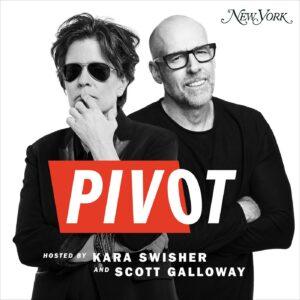
In this episode of Radiolab titled “New Normal,” the concept of change is explored through three intriguing stories. From studying stress in wild baboons to the transformation of a small town mayor and the domestication of animals, these stories challenge the idea that certain behaviors and traits are ingrained and unchangeable. Join Radiolab as they delve into the possibilities of individual choice challenging destiny.
Through the stories of wild baboons and the transformation of a small town mayor, Radiolab explores the idea that individual choice can challenge destiny. Neuroscientist Robert Sapolsky’s study of stress in baboons reveals that their behavior can change, even in highly aggressive and hierarchical societies. New male baboons joining Sapolsky’s troop learn non-aggressive behavior through early grooming by females. Similarly, Stu Rasmussen’s gradual transformation challenges traditional gender roles in a conservative town, showcasing the power of personal choice. These stories inspire hope that humans can also challenge ingrained behaviors and traits.
Neuroscientist Robert Sapolsky’s study of stress in wild baboons reveals that their behavior can change, contrary to the belief that aggression is ingrained in their nature. A troop of baboons shifting their behavior to feed on a garbage dump showcases the potential for change. The males in Sapolsky’s troop exhibit rare grooming behavior after a TB outbreak, challenging the notion of fixed aggression. New males joining the troop learn non-aggressive behavior from females through early grooming. While the peaceful culture observed in Sapolsky’s baboon troop is promising, its permanence is uncertain.
Stu Rasmussen’s transformation from an upstanding member of a small town to the first openly transgender mayor in the US highlights the potential for change in unexpected places. Stu’s gradual transition challenges traditional gender roles and inspires others struggling with their own gender issues. Despite opposition, Stu’s story showcases the power of personal choice and the impact it can have on a community. However, the future of the town’s peaceful culture is uncertain, and Stu’s passing in November 2021 is a loss to many who found hope and inspiration in his story.
Dmitry Belayev’s experiment on domesticated foxes demonstrates the potential for rapid change in animals. Selective breeding based on friendliness towards humans led to significant behavioral and physical changes in just 10 years. Humans have also experienced similar changes through self-domestication, favoring cooperation and tolerance. As the earth becomes more crowded, humans may continue to self-domesticate to adapt to living in larger groups. The domestication of animals and humans challenges the idea that certain behaviors and traits are fixed and unchangeable.
The stories shared in this episode of Radiolab challenge the notion that certain behaviors and traits are ingrained and unchangeable. From studying stress in wild baboons to the transformation of a small town mayor and the domestication of animals, these stories highlight the power of individual choice and the potential for change. Humans have the capacity to challenge destiny and self-domesticate, favoring cooperation and tolerance. As the world evolves, the hope is that individuals and societies can continue to embrace change and create a new normal.